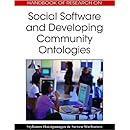
Towards an Ecological Meta-Design framework for Open Learning Ecosystems
April 7, 2011We are together with Mart Laanpere currently working with the theoretical paper: “An Ecological Meta-Design framework for Open Learning Ecosystems”
In this paper we will introduce the ecological Meta-Design framework for open learning ecosystems. Meta-design is designing the design process for cultures of participation – creating technical and social conditions for broad participation in design activities (Fisher et al., 2004). Such cultures of participation represent the new types of learners in open learning ecosystems. They are self-directed, largely autonomous, and take design initiatives in respect of their learning environments (Fiedler & Pata, 2009; Pata, 2009; Väljataga & Laanpere, 2010). Learning in the cultures of participation may be characterized as the process in which learner and the system (community, culture) detects and corrects errors in order to fit and be responsive. In this definition, learning process is conceptualized as largely self-organized, adaptive and dynamic. We assume that such learning follows the ecological principles, which have been effectively used to explain processes and systems in technology enhanced learning (Pór & Molloy, 2000; Crabtree & Rodden, 2007; Vyas & Dix, 2007; Boley & Chang, 2007; Vuorikari & Koper, 2009; Pata, 2009). Open learning ecosystem is an adaptive complex and dynamic learning system in which self-directed learners design their learning activities and follow open education principles by sharing freely over the internet knowledge, ideas, infrastructure and teaching methodology using Web 2.0 software. Without wishing to suppress down such a bottom-up self-emergence of eLearning designs, providing teachers in learning institutions with design solutions that enable them to regain some co-control in the learner-initiated activities and systems is needed.
In this paper we aim to describe how ecology principles form the baseline for Meta-Design of learning in open learning ecosystems. Such Meta-design principles are needed to provide teachers in open learning environments with new models for organizing learning courses that consider the design activities of the cultures of participation.
In this paper we propose that the ecological Meta-Design framework applies for open learning ecosystems that are adaptive and dynamically changing. Both focuses – the learning ecosystem evolution by end-user design, and nourishing the end-user design process by creating the scaffolds for designing (see Ehn, 2008; Fisher et al., 2004), are equally important aspects of ecological Meta-Design. In learning ecosystems autonomous learners continuously develop and dynamically change design solutions to support their learning. They incorporate into their personal learning environments different Web 2.0 tools, networking partners and artifacts, and monitor the state of the whole learning ecosystem to adapt their design solutions and learning objectives to the system and to other learners.
Teacher’s role in the ecological Meta-Design framework for open learning ecosystems is designing scaffolds and incentives for design activities of learners. For example teacher should:
a) monitor the evolution of the open learning ecosystem,
b) provide learners with the options that enhance and speed up the self-directed network-formation process (e.g. tags, mashups),
c) analyze the emerging affordances within the learning community, and provide analytical guidance for them aiding to make design decisions and selecting learning activities (e.g. social navigation, semantic navigation), and
d) seed learning activities into the open learning ecosystem that are based on self-organization (e.g. swarming).
We will provide an insight to the learning design models in which ecological principles have been used. Such learning designs provide us with different views for modeling the ecological Meta-Design process, and highlight important components of our framework.
The appropriate trends in learning design models, which should be considered are:
a) The open, community-driven, emergent and iterative activity sequences in the learning design process models, which are based on learner contribution (Hagen & Robertson, 2009);
b) The systemic model approach to learning designs, which considers interrelations between learners and teachers with the whole learning ecosystem, and enables to generalize and predict learning patterns (Rohse & Anderson, 2009) and system affordances (Pata, 2009);
c) The balance models of learning design focuses and aspects, that create conditions for independent, autonomous and self-directed learning (see Brockett and Hiemstra, 1991) according to the interpretivist and connective learning principles, and;
d) The eco-cognitive learning design models, which explain differentiated and contextually conditioned perception of learning affordances, that results in learning system evolvement by learner contribution and adaptation (Pata, 2009).
Some related slides:









Leave a comment